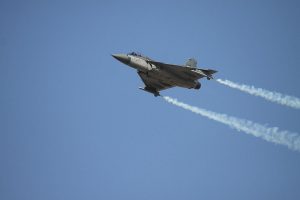Head of the Atomic Energy Organization of Iran (AEOI) Mohammad Eslami described talks with visiting Director-General of the International Atomic Energy Agency (IAEA) Rafael Grossi as “constructive”.
“Rafael Grossi came to Tehran at the invitation of the AEOI, and we had good and constructive talks with him,” Xinhua news agency quoted Eslami as saying of the meeting held here on Sunday.
“The spirit governing the negotiations is to create opportunities for the expansion of interactions and cooperation within the framework of the rules and regulations of the IAEA,” he said.
All the issues between Tehran and the agency are technical, Eslami said, adding that “political issues have no place in relations between us”.
“We decided to participate in the next meeting (of the IAEA in Vienna) and to continue our talks on the sidelines of the meeting,” he noted.
It was also decided that the experts of the IAEA will come to Iran to replace the memory cards of the technical surveillance cameras of the IAEA in nuclear facilities and take necessary technical measures for the cameras, said Eslami.
“Memory cards will be sealed according to the routine in Iran and stored, and new cards will be installed,” he said.
Grossi arrived in Tehran on Sunday for talks on bilateral cooperation ahead of the upcoming meeting of the board of governors of the IAEA in Vienna.
The IAEA informed member states this week that there had been no progress on two central issues: explaining uranium traces found at several old, undeclared sites and getting urgent access to some monitoring equipment so the agency can continue to keep track of parts of Iran’s nuclear program as provided for by the 2015 deal.
Separate, indirect talks between the United States and Iran on both returning to compliance with the deal have been halted since June. Washington and its European allies have been urging hardline President Ebrahim Raisi’s administration, which took office in August, to return to the talks.
Under the 2015 deal between Iran and major powers, Tehran agreed to restrictions on its nuclear activities in exchange for the lifting of sanctions.












